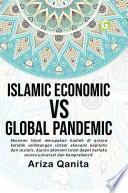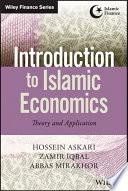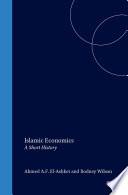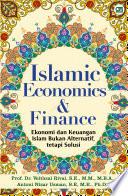
Islamic Economics Vs Global Pandemic
Islamic Economics Vs Global Pandemic Penulis : Ariza Qanita Ukuran : 14 x 21 cm ISBN : 978-623-319-387-0 Terbit : Februari 2021 www.guepedia.com Sinopsis : Ekonomi Islam merupakan hadiah di antara ketidak seimbangan sistem ekonomi kapitalis dan sosialis. Ajaran ekonomi Islam dapat berlaku secara universal dan komprehensif. Praktiknya tidak terbatas pada negara Islam atau pemeluk agama Islam semata. Sistem ekonomi Islam didasarkan pada prinsip-prinsip syariah yang bersumber dari al-Quran dan Hadis. Ekonomi Islam memiliki satu tujuan yaitu tercapainya falah atau kemaslahatan dan kesejahteraan hidup di dunia dan akhirat. Nilai-nilai ekonomi yang diilhami wahyu menjadi karakteristik ekonomi Islam. Sistem ekonomi ini juga memiliki peran tersendiri untuk menjawab tantangan ekonomi di tengah krisis pandemi. Pandemi virus COVID-19 yang sudah berlangsung hampir satu tahun telah melemahkan ekonomi pada berbagai sektor seperti UMKM, lembaga keuangan, pariwisata, bahkan pertanian dan ketahanan pangan. Dalam hal ini instrumen ekonomi Islam dapat dikembangkan sebagai salah satu solusi pemulihan ekonomi. Beberapa instrumen seperti bank syariah, fintech syariah, industri halal maupun filantropi seperti ZISWAF memiliki potensi besar untuk dimanfaatkan sebagai sarana perbaikan ekonomi umat baik dari segi pemenuhan kebutuhan konsumtif maupun keberlangsungan usaha produktif. Buku ini membahas serangkaian instrumen ekonomi Islam baik secara kelembagaan maupun implementasi nilai kaitannya dengan tantangan ekonomi di tengah pandemi. Buku ini diharapkan dapat menjadi tambahan pengetahuan dan wawasan serta bermanfaat baik secara teoritis maupun praktis. www.guepedia.com Email : [email protected] WA di 081287602508 Happy shopping & reading Enjoy your day, guys
- ISBN 13 : 6233193877
- ISBN 10 : 9786233193870
- Judul : Islamic Economics Vs Global Pandemic
- Pengarang : Ariza Qanita,
- Kategori : Antiques & Collectibles
- Penerbit : GUEPEDIA
- Bahasa : id
- Halaman : 130
- Google Book : https://play.google.com/store/books/details?id=kNdMEAAAQBAJ&source=gbs_api
-
Ketersediaan :
Islamic Economics Vs Global Pandemic Penulis : Ariza Qanita Ukuran : 14 x 21 cm ISBN : 978-623-319-387-0 Terbit : Februari 2021 www.guepedia.com Sinopsis : Ekonomi Islam merupakan hadiah di antara ketidak seimbangan sistem ekonomi kapitalis ...






